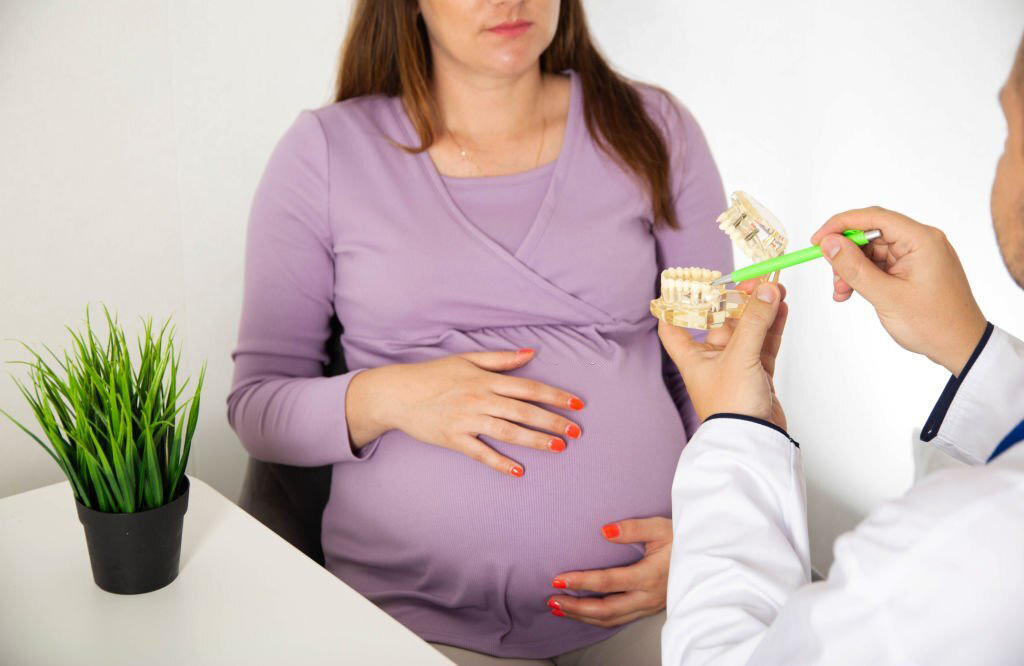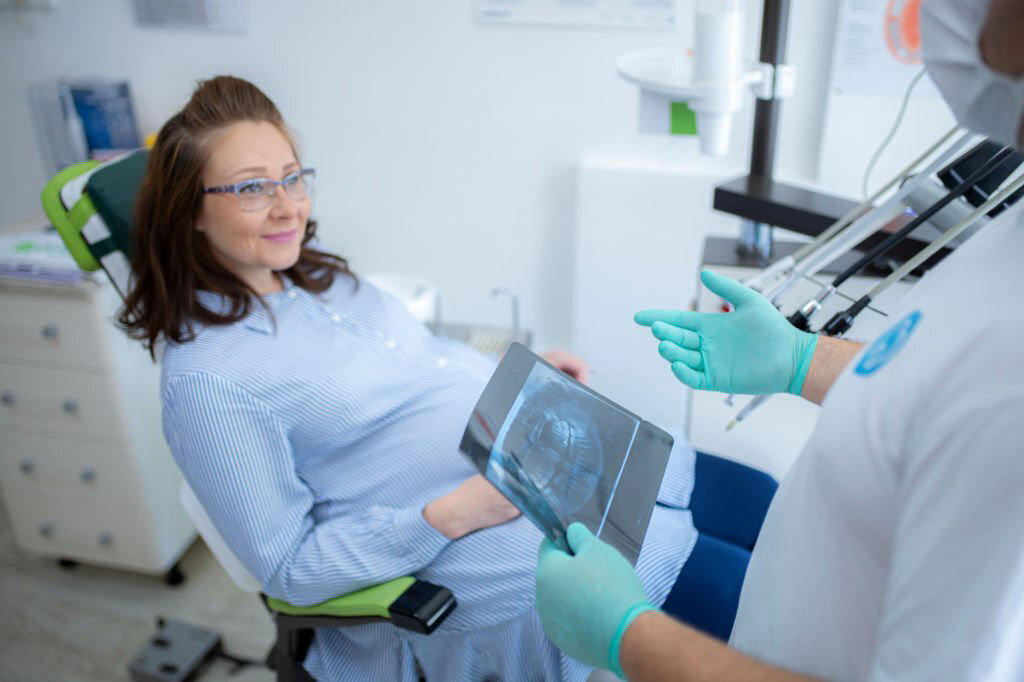As young and future parents, it's important to prioritize your dental health during pregnancy. Many people may not realize the impact that pregnancy can have on your oral health, but it is actually a critical time to pay attention to your teeth and gums. In this blog post, we will explore the various aspects of dental health during pregnancy, including how pregnancy affects your oral health, common dental problems that can arise, and steps you can take to prevent and treat these issues.
Dental health refers to the overall condition of your teeth, gums, and mouth. It plays a crucial role in your overall well-being, as oral health issues can have far-reaching effects on your body. During pregnancy, hormonal changes can impact your dental health in several ways. The increase in hormone levels can lead to an increased risk of gum disease, which can further lead to other dental problems if left untreated.
Furthermore, pregnancy can also affect your body's response to plaque, the sticky film of bacteria that forms on your teeth. If plaque is not removed through regular brushing and flossing, it can harden into tartar and cause cavities. Additionally, pregnant women may also experience changes in taste and cravings, which can affect their dietary choices and potentially impact their dental health.
It's crucial to understand these connections between pregnancy and dental health to ensure a healthy and problem-free journey for both you and your baby.
Cavities, also known as dental caries, are a common dental problem that can occur during pregnancy. The hormonal changes and increased acidity in the mouth can contribute to the formation of cavities. It's important to note that the use of dental fillings during pregnancy is safe and necessary to address cavities and prevent further damage to the tooth.
When it comes to dental fillings, there are two types to consider: mercury-free fillings and fillings containing mercury, also known as amalgam or silver fillings. Mercury-free fillings, such as composite resin or porcelain, are considered safe during pregnancy and are a popular choice due to their aesthetic appeal. On the other hand, fillings containing mercury are still used in some cases, but the American Dental Association considers them safe for pregnant women.
It's essential to discuss your options with your dentist and weigh the pros and cons of each type of filling to make an informed decision that suits your specific needs and preferences.
Gingivitis, a mild form of gum disease, is another common dental problem that pregnant women may encounter. The hormonal changes during pregnancy can make the gums more susceptible to inflammation and infection. This can lead to symptoms such as red, swollen, and bleeding gums.
If left untreated, gingivitis can progress to periodontal disease, also known as periodontitis or gum disease. This advanced stage of gum disease can cause the gums to recede, teeth to loosen, and even result in tooth loss. The bacteria associated with gum disease can also enter the bloodstream and potentially affect the developing baby.
To prevent and treat gingivitis and gum disease during pregnancy, it is crucial to maintain good oral hygiene practices. This includes brushing your teeth at least twice a day, flossing daily, and visiting your dentist regularly for professional cleanings and check-ups. Your dentist may also recommend antimicrobial mouth rinses or other treatments to help control the gum disease.
Pregnancy tumors, also known as pyogenic granulomas, are non-cancerous growths that can develop on the gums during pregnancy. These tumors are typically red or purple in color and can bleed easily. While they may be alarming in appearance, pregnancy tumors are not harmful and usually resolve on their own after giving birth.
Tooth erosion is another dental problem that pregnant women may experience. The increased acidity in the mouth, combined with vomiting or acid reflux commonly associated with pregnancy, can contribute to the erosion of tooth enamel. This can lead to tooth sensitivity, discoloration, and an increased risk of cavities.
To prevent tooth erosion, it is important to rinse your mouth with water or a fluoride mouthwash after vomiting and avoid brushing your teeth immediately after to prevent further damage to the softened enamel. It is also advisable to seek dental advice regarding appropriate oral care products and techniques that can help protect your teeth during this time.

Recognizing the signs and symptoms of dental problems during pregnancy is important to address issues promptly and prevent further complications. Some common signs to watch out for include:
1. Gum inflammation: Red, swollen, and bleeding gums.
2. Tooth sensitivity: Increased sensitivity to hot, cold, or sweet foods and drinks.
3. Tooth pain: Persistent toothache or discomfort.
4. Bad breath: Persistent bad breath or a sour taste in the mouth.
5. Loose teeth: Teeth that feel loose or mobile.
If you experience any of these symptoms, it is important to schedule an appointment with your dentist as soon as possible for a thorough examination and appropriate treatment.
Prevention is key when it comes to maintaining good dental health during pregnancy. Here are some tips to help you prevent dental problems:
1. Practice good oral hygiene: Brush your teeth at least twice a day with a fluoride toothpaste and floss daily.
2. Maintain a healthy diet: Eat a balanced diet rich in vitamins and minerals to support your oral health and the development of your baby's teeth.
3. Limit sugary snacks and drinks: Reduce your intake of sugary foods and drinks to minimize the risk of cavities.
4. Stay hydrated: Drink plenty of water to prevent dry mouth and promote saliva production, which helps protect against tooth decay.
5. Visit your dentist regularly: Schedule regular dental check-ups and cleanings to monitor your oral health and address any potential issues early on.

Many pregnant women may have concerns about the safety of dental X-rays during pregnancy. However, it is important to note that dental X-rays, when performed with proper shielding and precautions, are considered safe for pregnant women. The minimal radiation exposure from dental X-rays is unlikely to cause harm to the developing baby.
However, it is still recommended to inform your dentist about your pregnancy so that they can take appropriate measures to ensure your safety during any dental procedures. Elective dental treatments such as cosmetic procedures or non-essential X-rays may be postponed until after the pregnancy, but necessary treatments for dental problems should not be delayed.
As young and future parents, taking care of your dental health during pregnancy is essential for your overall well-being and the health of your baby. Understanding the impact of pregnancy on your dental health, recognizing common dental problems, and implementing preventive measures can help ensure a healthy and problem-free journey. Remember to prioritize regular dental check-ups, maintain good oral hygiene practices, and seek professional dental advice whenever needed. By doing so, you can enjoy a beautiful and healthy smile throughout your pregnancy and beyond.

